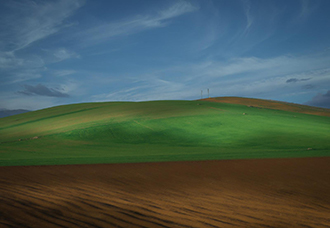Targets and Strategic plan
The METEO research group will continue investing effort in high-impact meteorological and wildfire research. Future efforts for the upcoming period will concentrate on:
WILDFIRE RESEARCH

- Establishing and operating the first network of remote automatic weather stations (RAWS) in Greece to support the monitoring of fire weather and fuel conditions in remote, fire-prone locations. The creation of the network will be made feasible through funding in the frame of the AEGIS-NOA program
- Enhancing the capacity for operational fire spread forecasting by upgrading IRIS 2.0 and employing new modeling systems (e.g., Flammap)
- Launching an innovative web application (fireweather.gr, fireweather.eu) to accommodate the full spectrum of wildfire-related products. The application intends to serve as a focal point for retrieving information relevant to wildfires in Greece, thereby supporting civil protection and public safety, and increasing awareness and preparedness
- Establishing collaborations with Institutes and Universities across Europe and internationally to promote the advancement of scientific knowledge on extreme wildfires, and to support collaborative analyses and predictions of active wildfires at operational level.
HIGH-IMPACT WEATHER RESEARCH
- Upgrade and expand weather-monitoring infrastructure through: (a) expansion of the existing surface weather station network (currently includes 490 stations), (b) expand the network density of ZEUS lightning detection network. (c) build a dense network of micro weather stations in the urban zones of large cities in Greece: Athens, Thessaloniki, Heraklion, Patra, Larissa. This infrastructure upgrade is expected to be funded in the frame of the AEGIS-NOA program.
- Develop a series of dedicated weather and climate services with focus on the use of the general public but also of specific end-users: agriculture, insurance companies, energy sector. The services will focus on weather-related risks by sector and infrastructure involved. For that purpose two prerequisite criteria have to be fulfilled: strengthening of the team with young and ambitious researchers, and availability of funds for infrastructure (both for instrumentation and computing resources).
- Build a nation-wide early warning system with a fully integrated operational monitoring and forecasting system for the diagnosis and forecasting of severe weather events and related natural hazards.
SOCIETAL IMPACT RESEARCH
- Perform series of analyses for disaster risk reduction and resilience-building: (a) estimate critical values of rainfall parameters for early detection and warning of rain and flood risk at a very local level; their application, evaluation and adjustment based on evidential data; (b) conduct longitudinal studies of individuals’ risk perception, adaptation and preparedness against weather-related hazards, to understand how societal factors evolve to affect the level of resilience; (c) employ new communication and image technologies to crowdsource information from flood observations shared through social media, to improve understanding and modelling of flood hazard.
